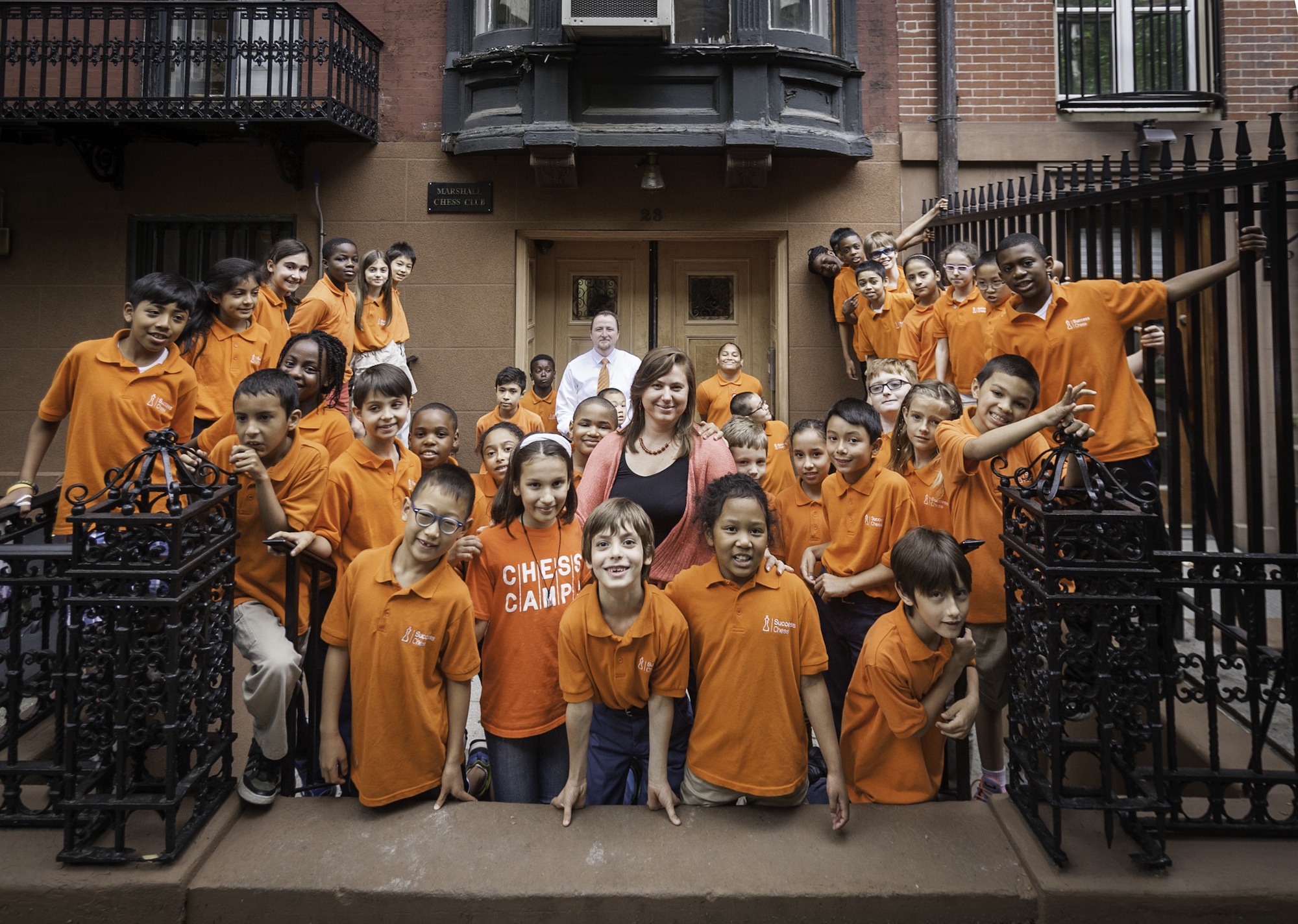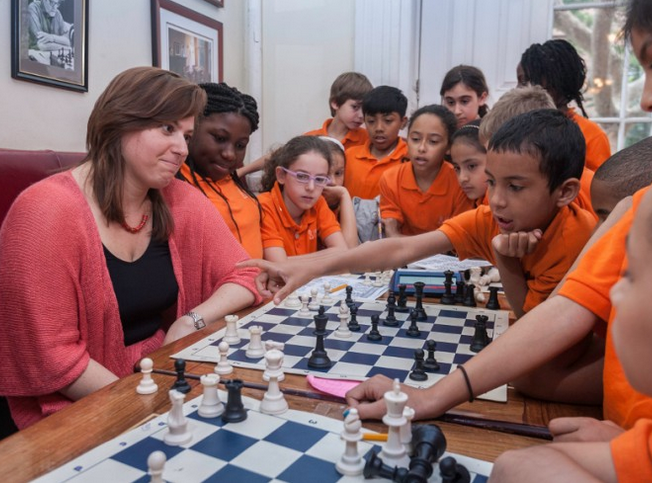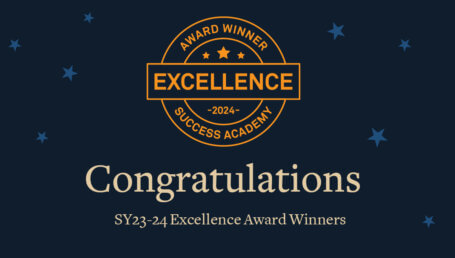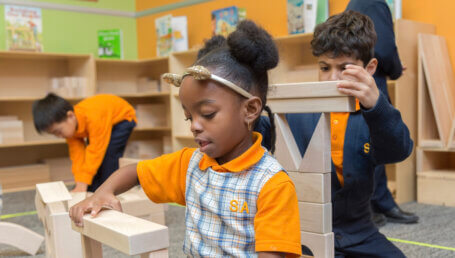
Judit Polgar — the best woman chess player in history — recently coached 40 Success Academy scholars attending a one-week chess camp at the historic Marshall Club, home to such famous players as Bobby Fischer and Fabiano Caruana.
The Hungarian-born grandmaster sat down at the chessboard and challenged campers to best her moves. And the Success scholars rose to the occasion.
Polgar was the No. 1 female player for 26 years, beginning in 1989, when she was only 12, and ending in 2015. She is the only female player to date to have beaten a reigning world chess champion — Garry Kasporov in 2002. Among the other male champions she has bested at various times: Anatoly Karpov, Magnus Carlsen, and Boris Spassky.
The 38-year-old chess star, an ardent advocate of incorporating chess into educational curriculums, is the only woman in history to top a 2700 on the Elo rating system for chess skills. In an interview, Polgar discussed why more schools should expose children to chess and changes to the sport that can close the gender divide. Her educational chess curriculum, called the Judit Polgar Chess Palace Programme, has been adopted by Hungary.
Question: How and why can chess play a vital role in educating children?
Polgar: As a sport, chess is 15 centuries old. Yet, like music, it’s still a language that unites different peoples across socioeconomic groups, across generations, and across cultures. Chess demolishes differences, whether between poor and rich or the old and the young.
Chess demolishes differences, whether between poor and rich or the old and the young.
Chess gets kids to think globally, to see their connection with people around the world. It fits very much in today’s digital world, where there is a connection between every piece of information, just as there is a connection between every move in chess. One idea or move leads to the next and builds a picture or strategy.
We use chess as a tool to build the kids’ problem-solving skills and logic. These ultimately enhance their understanding of math or their approach to reading. The idea of learning by playing and playing to learn, as you do in chess, is something which builds a regimen that makes kids more efficient about learning in general.
But very important — there always has to be pleasure in that study and in the effort to get better at anything.
Chess also teaches you to be strong. It’s a tough game, but life’s a tough game and you have to play to win. If you lose—and you will at some point — it should inspire you to work harder. You need to be willing to compete.
Question: How young would you introduce children to chess? When did you start?
Polgar: I started to play chess when I was 5 years old. But it was easy for me because I had two older sisters who were already playing competitively. There are educational programs where chess is introduced as early as age 2! But I would say the earlier you can introduce it in school the better.
Question: Why do you think so relatively few girls get involved with chess or stay involved with the game, as they become teenagers?
Polgar: It is a fact that, after 11 or 12, girls drop out. I think one of the main reasons is a lack of support. Girls are not supposed to be as good as boys, according to conventional wisdom. Boys also are often many times more competitive. I was lucky to grow up in an environment where my parents and coaches supported me in my dreams to be the best. But, of course, for my parents, there was no choice — we were all girls.
Question: How can that situation change for girls?
Polgar: For the situation to change, women have to compete against men. Until we do, we can never reach the top. Even though women tell me I am an inspiration, not that many more of them are playing against men now than they were when I was playing.









